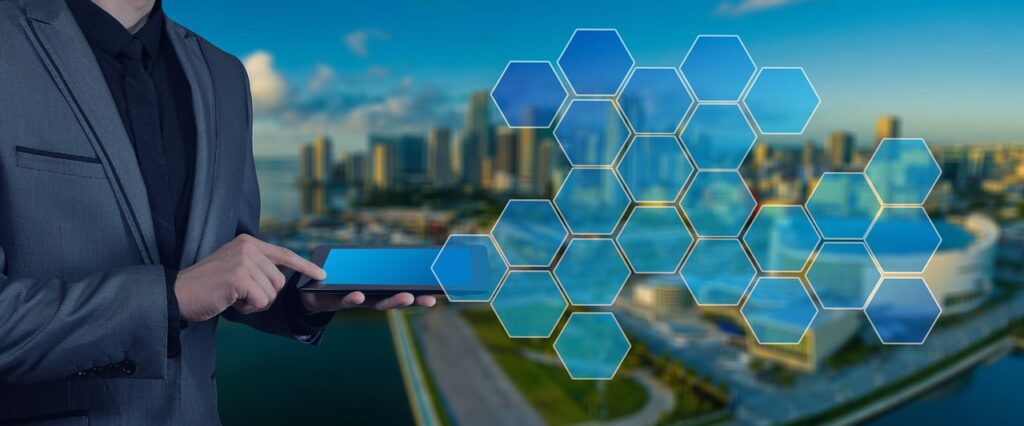India, a 71-year-old democratic nation, is standing at the cusp of an industrial transformation, with AI and Internet of Things (IoT) finally spreading its tentacles, even though they lag when compared to regions like China. With increasing urbanisation, living in a high-tech and advanced city that connects people through sustainable machine to machine communication (M2M), offers sustainable, greener, more competitive and innovative commerce and better lifestyle, seems more plausible than ever. Prime Minister Narendra Modi’s Smart City Mission claims to be working on the development of 100 smart cities in India. AI and IoT will act as catalysts for creating digital platforms, smart applications, providing adequate water and electricity supply, efficient transportation, solid waste management, affordable housing, smooth IT connectivity & good governance. International experiences of smart city concepts from Barcelona, which used Information and Communication Technologies for social and urban growth; Manchester which promoted community engagement & capacity building etc. show how technology can be leveraged for a better lifestyle. With a population of nearly 1.31 billion, IoT and smart cities can help in environmental, social and economic sustainability.
How can IoT help build smart cities in India?
IoT (Internet of Things) can be used to connect devices for urban planning, safety of people, efficient power distribution, intelligent traffic and transportation management systems etc. It serves as a common technology for the service providers to engage with citizens for effective city planning and efficient management. As per Gartner, “A smart city is based on intelligent exchanges of information that flow between its many different sub-systems. This flow of information is analyzed and translated into citizen and commercial services. The city will act on this information flow to make its wider ecosystem more resource efficient and sustainable. The information exchange is based on a smart governance operating framework designed to make cities sustainable.”
Smart cities can adopt IoT for smart safety and security systems. They are enabled with real-time monitoring systems like IP based video surveillance, drone-based alarm systems and rapid action team dispatch technology. Advanced analytical, AI and image processing can be also used for identifying criminal pattern, probability of theft etc. The governance system can become more transparent and increase accountability. The use of mobile services and e-forums can provide services faster and save the hassle of going to individual offices. Integration of IoT with smart cities can make energy consumption more efficient. This can be done through networked smart grids that have real-time demand response management systems.
IoT can also help in dynamic traffic management by connecting various modes of transport, modern road network and traffic management solutions. It can streamline movement for commuters, provide tips on the best time to travel and alerts on the nearest available parking space. Smart rubbish canisters empowered by IoT can control waste. Authorities can monitor waste management by using smart sensors that would inform authorities of trash nuisances. All this can be achieved with greater efficiency, coordination and accuracy than that offered by humans as IoT can work with little or no human intervention.
The Indian Perspective
According to a report by Deloitte, India needs $150 billion investment to realise the vision of 100 smart cities. IoT has a growing global market from an Indian perspective. Deloitte NASSCOM study predicts that IoT units in India will be valued at $1.9 billion by 2020 and the revenue is expected to grow to $9 billion by 2020. It is expected to open a plethora of growth opportunities for India across all industries. Healthcare, automotive, transportation/logistics and manufacturing are the leading verticals demanding IoT solutions. Both B2B and B2C (Business to Business and Business to Customer) stand to benefit with IoT as it can offer better quality and safety standards with cost efficiency by building end-to-end IoT ecosystem.
IoT is like a double-edged sword which can either reshape our society for a better future or cause colossal damage. India needs high-quality digital infrastructure, strong data laws and a regulatory body to establish smart cities with IoT. There will be sensitive data especially in areas like health and transport and the laws must garner our confidence to ensure that the information is secure before it can be opened up to IoT. It is very early to affirm whether the infrastructural development aided by IoT will pan out positively or not. India has a long way to go to realize the actual potential of this technology given the high cost of IoT devices, lack of skilled manpower, R&D, etc. However, with compelling use cases, the changes it will trigger will surely be big.


